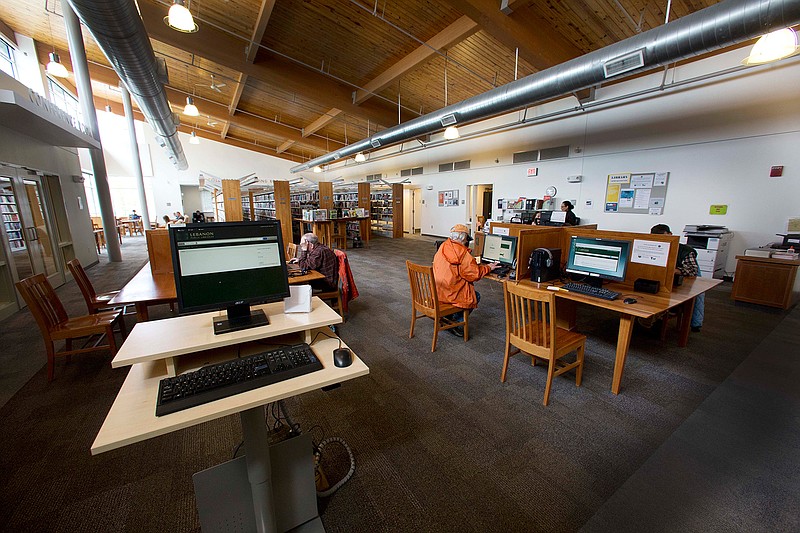LEBANON, N.H.-A small library in New Hampshire sits at the forefront of global efforts to promote privacy and fight government surveillance-to the consternation of law enforcement.
The Kilton Public Library in Lebanon, a city of 13,000, last year became the nation's first library to use Tor, software that masks the location and identity of internet users, in a pilot project initiated by the Cambridge, Massachusetts-based Library Freedom Project. Users the world over can-and do-have their searches randomly routed through the library.
Computers that have Tor loaded on them bounce internet searches through a random pathway, or series of relays, of other computers equipped with Tor. This network of virtual tunnels masks the location and internet protocol address of the person doing the search.
In a feature that makes Kilton unique among U.S. libraries, it also has a computer with a Tor exit relay, which delivers the internet query to the destination site and becomes identified as the last-known source of the query.
Alison Macrina, founder and director of the Library Freedom Project, said her organization chose Kilton for its pilot project because it had embraced other privacy-enhancing software the project recommended and because she knew the library had the know-how take it to the complicated exit-relay stage.
"Libraries are bastions of freedom," said Shari Steele, executive director of the Tor Project, a nonprofit started in 2004 to promote the use of Tor worldwide. "They are a great natural ally."
There are about 7,200 relays and 1,000 exit relays worldwide, with more being added steadily, Steele said.

